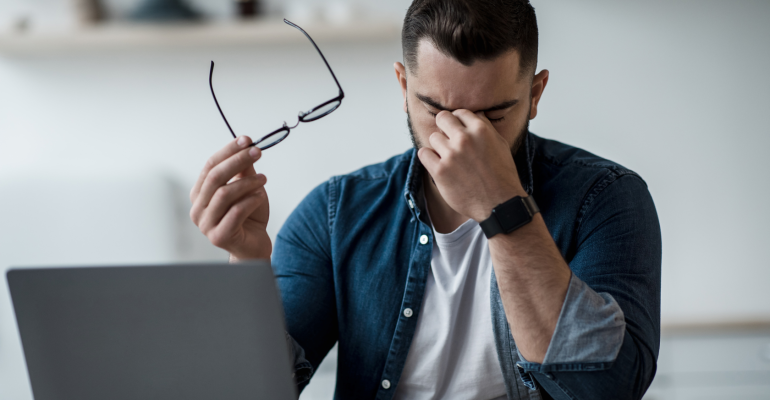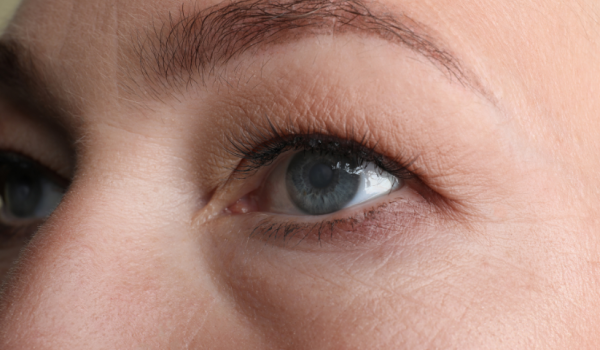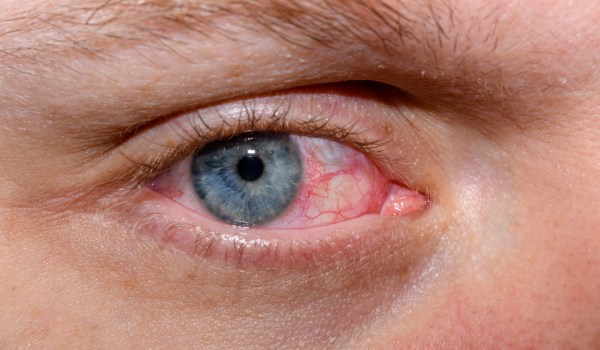Whilst it’s neither painful nor dangerous, eyelid twitching is something that a lot of us experience at least a handful of times throughout our lives.
This involuntary twitching of the eyelid is often described as a pulsing or vibrating sensation, and is known as myokymia. It is usually harmless and occurs when the muscles in the eyelids quickly and repeatedly contract and relax.
What is making my eyelids twitch?
Whilst the exact cause of eyelid twitching is not always known, it can be attributed to several factors, including:
Fatigue: Lack of sleep, overworking your eyes, or general fatigue can lead to eyelid twitching.
Stress: Stress and anxiety can contribute to muscle contractions, including those in the eyelids.
Caffeine and stimulants: Excessive consumption of caffeine or other stimulants can trigger eyelid twitching in some individuals.
Eye strain: Prolonged use of digital devices, reading for extended periods, or other activities that strain your eye muscles may lead to eyelid twitching.
Dry eyes: Insufficient lubrication of the eyes can cause irritation, which, in turn, can lead to eyelid twitching.
Nutritional imbalances: In some cases, a lack of certain vitamins or minerals in your diet, such as magnesium, can contribute to muscle spasms, including eyelid twitching.
Allergies: Allergic reactions can cause eye irritation and potentially trigger eyelid twitching.
Medications: Some medications can have side effects that include muscle twitching as a possible symptom.
Alcohol and tobacco: Excessive alcohol consumption or smoking can sometimes exacerbate eyelid twitching.
Underlying medical conditions: In rare cases, eyelid twitching may be associated with underlying medical conditions, such as blepharospasm or hemifacial spasm. These conditions may require medical attention.
Most of the time, eyelid twitching resolves on its own without the need for medical intervention. If the twitching persists, becomes painful, or is accompanied by other concerning symptoms, it’s advisable to consult a healthcare professional for a proper evaluation.
They can help identify and address any underlying causes and recommend appropriate treatments if necessary.
What can I do to reduce eyelid twitching?
Try these 5 simple steps:
- Sleep is essential for good health and good ocular health. Aim for 8 hours per night with regularity the key, if you find it takes you a while to fall asleep, consider getting into bed slightly earlier than usual.
- Do what you can to reduce stress. Whilst the accumulation of stress isn’t always avoidable, there are things we can do to reduce it such as taking walks, reading, breathing exercises, meditation, or even listening to an audio book.
- Try to limit your daily caffeine consumption to reduce the risk of it causing eyelid twitching. If you drink a lot of coffee, try limiting yourself to 2 cups per day and avoid drinking coffee later in the day. If you’re a lover of energy drinks, try not to have more than 1 in every 24 hours.
- Give your eyes periodic breaks if they feel fatigued. If your job requires you to stare at a screen all day, be sure to take small breaks and gaze at things that are further away. Try following the 20:20:20 rule, take a break of 20 seconds every 20 minutes and look at something 20 feet (6 meters) away.
- Eat a balanced diet and try to include some magnesium-rich food sources in your diet, such as beans, nuts, avocado and dark leafy greens like spinach. Read more about the best foods for eye health.
If your eyelid twitching is consistent and persists after eliminating these common causes, talk to your doctor to see if they can identify any underlying issues that could be causing your eyelid twitching.
Medical Disclaimer
This article is for information purposes only and should not be considered medical advice. If you or any other person has a medical concern, you should consult with your health care provider or seek other professional medical treatment. Never disregard professional medical advice or delay in seeking it because of something that you have read on this blog, website or in any linked materials.







